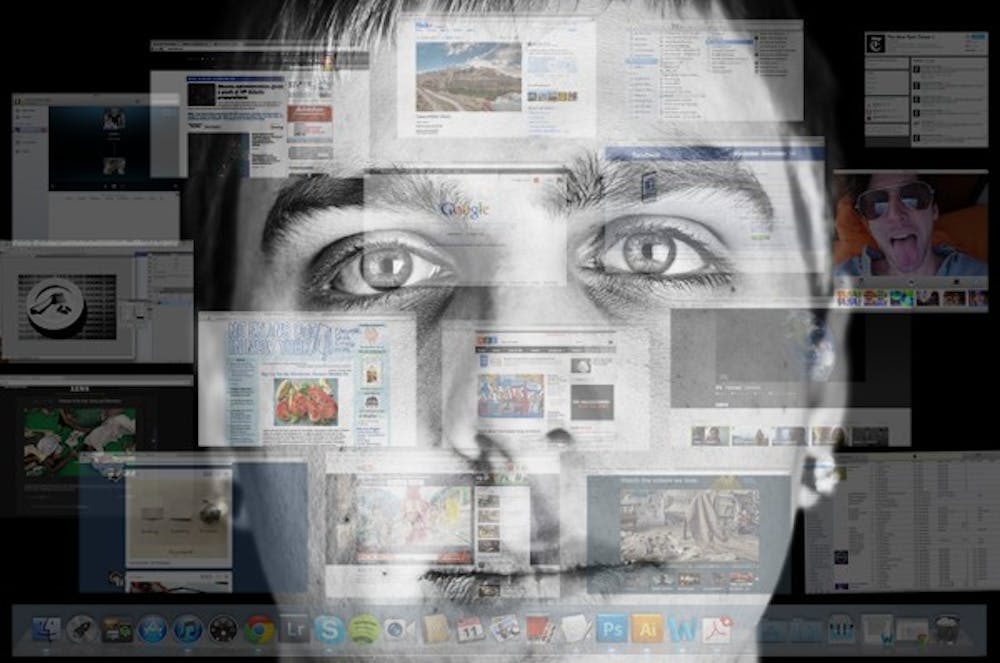'Internet-use disorder' a new possible mental illness
People struggling with technology addiction may have a legitimized psychological disorder, according to a recent story in the New York Post.
The American Psychiatric Association is adding “internet-use disorder” as “recommended for further study” in the Diagnostic and Statistical Manual of Mental Disorders’ revised edition. The DSM serves as a catalyst for mental illnesses worldwide.
Central Michigan Unviersity Assistant Psychology Professor Kyle Scherr said available research from media psychologists suggest it’s likely internet-use disorder could exist.
Scherr said research by Psychologist Doug Gentile at Iowa State suggests nearly one in 10 gamers could be considered pathological players, meaning it’s damaging aspects of daily functioning. People that fit into that category play more than 24 hours a week, compared to a “normal” ten hours.
“Pathological players who play significantly more than average players can cause substantial problems for their families and schools,” he said. “Research has found a reliable association between both television and video game playing and increased attention issues in youth. It seems likely that pathological internet use would also develop attention issues in youth.”
According to the New York Post article, the proposed disorder traits include “preoccupation with online gambling and a need to spend more time wagering via the Internet, withdrawal symptoms when computer use is denied and continued excessive Internet use by an individual – even if he or she knows how dangerous the problem has become." Lying to shrinks and loved ones and losing interest in other activities are also disorder traits.
The DSM has had five editions since it was originally published in 1952, with the most recent being 12 years ago, according to a report from digitaltrends.com.
According to a report from an Australian website, smh.com.au., the possible disorder is being treated in clinics in Australia. Children as young as seven years old have reported being irritable, aggressive and hostile when their laptops or other electronics are taken away. Children are replacing food and social interactions with the virtual and technological world they are addicted to, the article stated. Children are not the only ones at risk for a possible mental disorder.
An Australian psychologist, Emil Hodzic, started a video game addiction clinic to simmer the negative consequences stemming from technology overuse. Seventy percent of the clients were teenagers or younger, according to the report.
Although it seems to be a growing issue, Scherr said there are some positive aspects with technology.
“If people demonstrate a moderate amount of media usage, research has found that pro-social video games and media increase children’s pro-social behaviors,” he said. “Other research has found that a moderate level of media usage also increases cognitive abilities.”
Scherr said he does not feel comfortable addressing whether it should or should not be included in the DSM.
“Although I think (children) are developing differently than past generations who did not have as much exposure to technology, I have no research or empirical basis for this argument, and, as such, do not feel any opinion or comments I offer warrant inclusion,” he said.
Psychology student Beau Wolfe said the possibility for “internet-use disorder” to be included in the manual of psychological disorders is astounding.
“It’s not OK to make any little thing a mental disorder,” the Milford sophomore said.
He said the heart of the issue lies within the parents who are allowing their children to play video games, sit on the computer and use social media at a young age.
“They lose the creativity they need to thrive,” he said. “It’s more like parents neglecting kids.”
Wolfe said he started using technology such as video games since he was 7 years old and uses technology very actively. He said many college students would probably fit into the “pathological” category.




